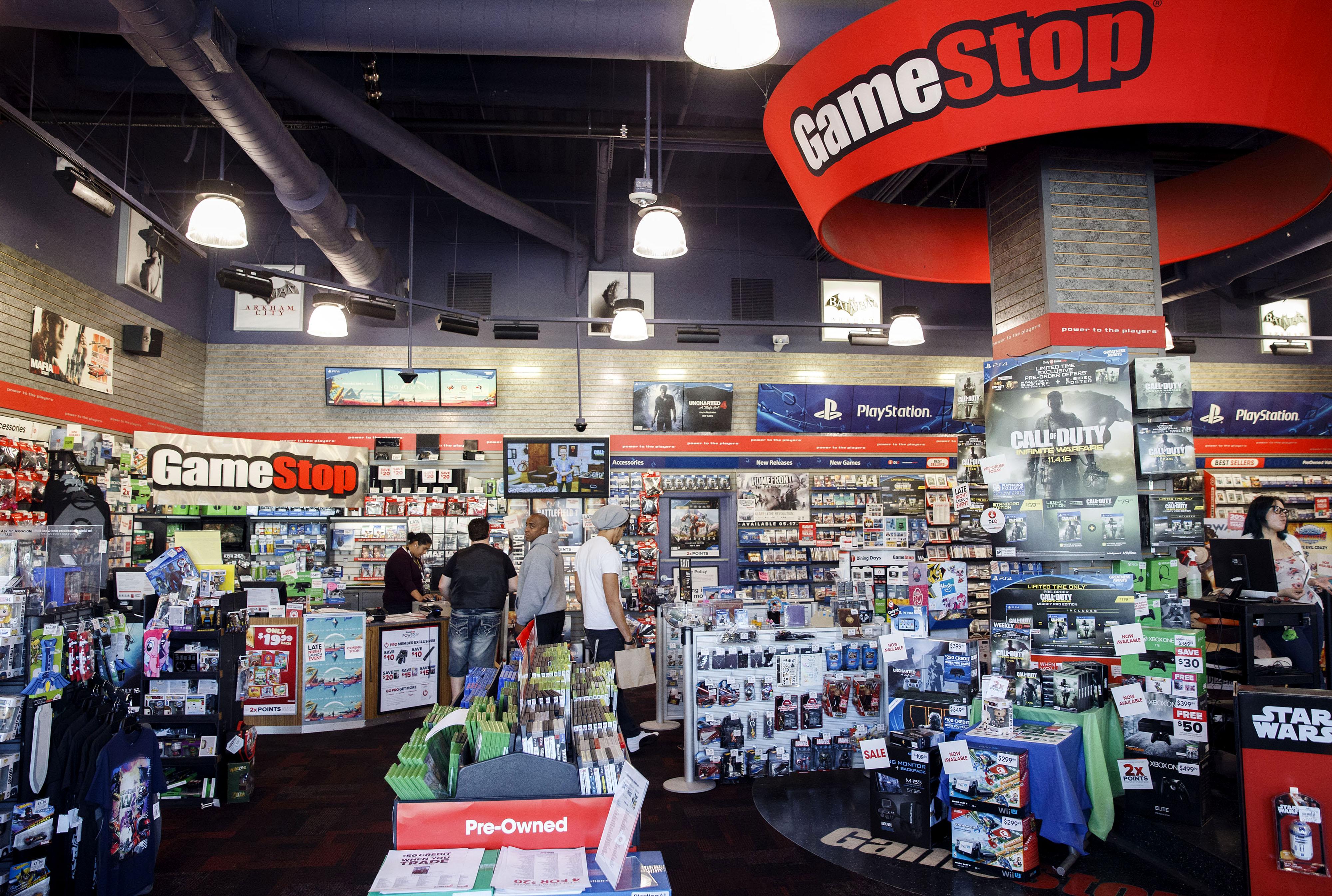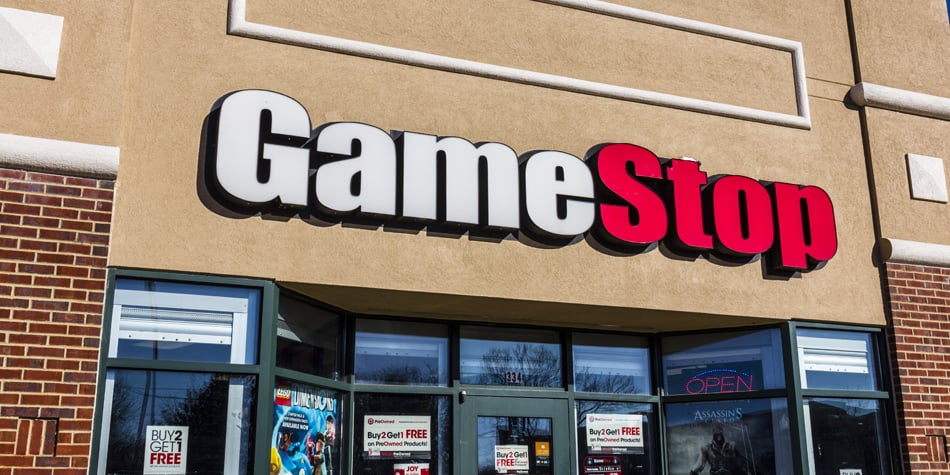GameStop Corp. (NYSE:GME) Earnings Preview and Financial Analysis

- GameStop is set to release its quarterly earnings with an expected EPS of $0.09 and revenue of $1.48 billion.
- The company has a high P/E ratio of 177.81 and a price-to-sales ratio of 2.64, indicating investor confidence.
- Despite challenges in cash flow, GameStop maintains a strong liquidity position with a current ratio of 5.11.
GameStop Corp. (NYSE:GME) is a prominent player in the retail gaming industry, known for its physical and digital video game sales. The company gained significant attention as a "meme stock," with its stock price experiencing dramatic fluctuations due to retail investor interest. GameStop's competitors include companies like Best Buy and Amazon, which also offer gaming products.
As GameStop prepares to release its quarterly earnings on March 25, 2025, analysts predict an earnings per share (EPS) of $0.09 and revenue of approximately $1.48 billion. This release is part of a busy week for investors, who are also watching for inflation data and other earnings reports, as highlighted by CNBC's Jim Cramer.
GameStop's financial metrics reveal a mixed picture. The company has a high price-to-earnings (P/E) ratio of 177.81, indicating that investors are paying a premium for its earnings. The price-to-sales ratio of 2.64 suggests that investors are willing to pay $2.64 for every dollar of sales, reflecting confidence in the company's revenue potential.
Despite these high valuations, GameStop faces challenges in cash flow generation, as evidenced by its negative enterprise value to operating cash flow ratio of -265.31. However, the company maintains a strong liquidity position with a current ratio of 5.11, indicating its ability to cover short-term liabilities.
GameStop's debt-to-equity ratio of 0.096 shows a conservative approach to leveraging debt, which may appeal to risk-averse investors. As the company releases its earnings, stakeholders will be keen to assess any changes in its financial health and strategic direction.
| Symbol | Price | %chg |
|---|---|---|
| BELI.JK | 372 | 0 |
| BUKA.JK | 177 | 0 |
| MAPA.JK | 545 | 0 |
| ACES.JK | 430 | 0 |

GameStop Shares Dip 4% as Revenue Misses Despite Surprise Profit
GameStop (NYSE:GME) shares dropped more than 4% intra-day today after the company reported first-quarter revenue that fell short of expectations, overshadowing an unexpected profit.
The company posted adjusted earnings of $0.17 per share—well ahead of Wall Street's $0.04 estimate—while revenue came in at $732.4 million, missing forecasts of $754.2 million. The stronger bottom-line performance was not enough to offset concerns about falling sales, particularly as hardware and accessories revenue slumped roughly 32%.
Despite returning to profitability with net income of $44.8 million, GameStop continues to face headwinds from the industry-wide shift toward digital game purchases. In response, the company has closed hundreds of U.S. stores and expanded its e-commerce initiatives.
However, international restructuring charges pushed the company to an operating loss of $10.8 million, adding to investor caution. The mixed report underscores the ongoing challenges GameStop faces in navigating its digital transformation.

GameStop Corp. (NYSE:GME) Earnings Preview: A Shift Towards Digital Gaming and E-Commerce
- GameStop's earnings per share (EPS) is estimated to be $0.08, marking a significant 166.7% increase from the previous year.
- The company's strategic shift towards digital gaming and e-commerce is crucial for adapting to changing consumer preferences.
- GameStop's financial health is indicated by a low debt-to-equity ratio of 0.08 and a strong current ratio of 8.05.
GameStop Corp. (NYSE:GME) is a well-known retailer in the gaming industry, primarily selling video games, consoles, and gaming accessories. The company has been in the spotlight due to its strategic shift towards e-commerce and digital gaming, aiming to adapt to the evolving market landscape. As GameStop prepares to release its first-quarter fiscal 2025 earnings on June 10, 2025, investors are keenly watching for insights into its financial performance.
Analysts estimate GameStop's earnings per share (EPS) to be $0.08, a significant 166.7% increase from the previous year. This growth is attributed to the company's strategic focus on collectibles and cost-cutting measures, which are expected to enhance profitability despite a projected 16% decline in revenue to $750 million. The shift towards digital gaming and e-commerce is a crucial factor for investors to consider, as it aligns with changing consumer preferences.
GameStop's valuation metrics provide a deeper understanding of its financial standing. The company has a high price-to-earnings (P/E) ratio of 100.31, indicating that investors are willing to pay a premium for its shares. The price-to-sales ratio of 3.45 and enterprise value to sales ratio of 2.31 reflect the market's valuation of GameStop in relation to its revenue. These figures suggest that while the company is valued highly, it faces challenges in its traditional business segments.
The company's financial health is further highlighted by its debt-to-equity ratio of 0.08, indicating a low level of debt compared to equity. This suggests a strong financial position, allowing GameStop to potentially invest in its strategic initiatives. Additionally, the current ratio of 8.05 demonstrates the company's ability to cover short-term liabilities with its short-term assets, providing a cushion for operational stability.
As GameStop releases its earnings, investors will closely examine these financial metrics and strategic shifts to assess the company's future prospects. The focus on digital gaming and e-commerce, along with its valuation and fundamentals, will play a pivotal role in shaping investor sentiment and decisions regarding GameStop stock.

GameStop Surges 14% After Bitcoin Investment Announcement and Profit Spike
GameStop (NYSE:GME) shares soared 14% intra-day today as the company unveiled plans to add Bitcoin to its treasury holdings and posted a significant jump in quarterly profit, despite declining revenue and continued store closures.
The retailer’s board approved a strategy to allocate a portion of its cash and future capital—whether from debt or equity—into Bitcoin, although no upper limit was disclosed for the potential investment. The move marks a bold pivot as GameStop seeks to diversify its balance sheet while reshaping its business in a tough retail environment.
GameStop has been aggressively trimming its store footprint, having closed 590 U.S. locations during fiscal 2024, with more closures planned in 2025. The company also completed its exit from the Italian market and downsized operations in Germany.
For the fourth quarter, net income more than doubled to $131.3 million, up from $63.1 million a year earlier, driven largely by cost-cutting efforts. SG&A expenses dropped to $282.5 million, down from $359.2 million, reflecting tighter operational discipline.
However, revenue continued to decline, falling to $1.28 billion from $1.79 billion in the same quarter last year, mirroring broader industry trends toward digital game downloads and streaming. For the full year, net sales fell to $3.82 billion, down from $5.27 billion in fiscal 2023.

GameStop Surges 14% After Bitcoin Investment Announcement and Profit Spike
GameStop (NYSE:GME) shares soared 14% intra-day today as the company unveiled plans to add Bitcoin to its treasury holdings and posted a significant jump in quarterly profit, despite declining revenue and continued store closures.
The retailer’s board approved a strategy to allocate a portion of its cash and future capital—whether from debt or equity—into Bitcoin, although no upper limit was disclosed for the potential investment. The move marks a bold pivot as GameStop seeks to diversify its balance sheet while reshaping its business in a tough retail environment.
GameStop has been aggressively trimming its store footprint, having closed 590 U.S. locations during fiscal 2024, with more closures planned in 2025. The company also completed its exit from the Italian market and downsized operations in Germany.
For the fourth quarter, net income more than doubled to $131.3 million, up from $63.1 million a year earlier, driven largely by cost-cutting efforts. SG&A expenses dropped to $282.5 million, down from $359.2 million, reflecting tighter operational discipline.
However, revenue continued to decline, falling to $1.28 billion from $1.79 billion in the same quarter last year, mirroring broader industry trends toward digital game downloads and streaming. For the full year, net sales fell to $3.82 billion, down from $5.27 billion in fiscal 2023.

GameStop Corp. (NYSE:GME) Earnings Preview and Financial Analysis
- GameStop is set to release its quarterly earnings with an expected EPS of $0.09 and revenue of $1.48 billion.
- The company has a high P/E ratio of 177.81 and a price-to-sales ratio of 2.64, indicating investor confidence.
- Despite challenges in cash flow, GameStop maintains a strong liquidity position with a current ratio of 5.11.
GameStop Corp. (NYSE:GME) is a prominent player in the retail gaming industry, known for its physical and digital video game sales. The company gained significant attention as a "meme stock," with its stock price experiencing dramatic fluctuations due to retail investor interest. GameStop's competitors include companies like Best Buy and Amazon, which also offer gaming products.
As GameStop prepares to release its quarterly earnings on March 25, 2025, analysts predict an earnings per share (EPS) of $0.09 and revenue of approximately $1.48 billion. This release is part of a busy week for investors, who are also watching for inflation data and other earnings reports, as highlighted by CNBC's Jim Cramer.
GameStop's financial metrics reveal a mixed picture. The company has a high price-to-earnings (P/E) ratio of 177.81, indicating that investors are paying a premium for its earnings. The price-to-sales ratio of 2.64 suggests that investors are willing to pay $2.64 for every dollar of sales, reflecting confidence in the company's revenue potential.
Despite these high valuations, GameStop faces challenges in cash flow generation, as evidenced by its negative enterprise value to operating cash flow ratio of -265.31. However, the company maintains a strong liquidity position with a current ratio of 5.11, indicating its ability to cover short-term liabilities.
GameStop's debt-to-equity ratio of 0.096 shows a conservative approach to leveraging debt, which may appeal to risk-averse investors. As the company releases its earnings, stakeholders will be keen to assess any changes in its financial health and strategic direction.

GameStop's Q3 Earnings Beat Expectations, Stock Gains 8%
GameStop (NYSE:GME) delivered mixed third-quarter results, with stronger-than-expected earnings offset by a significant revenue shortfall. The news led to an 8% surge in the company’s stock intra-day today.
For the quarter, the video game retailer reported adjusted earnings per share of $0.06, defying analysts’ projections of a $0.05 loss. However, revenue fell to $860.3 million, missing the $919.9 million estimate and marking a sharp 20.2% drop compared to $1.08 billion in the same period last year.
The decline in revenue was evident across the company’s core segments. Hardware and accessories brought in $417.4 million, software contributed $271.8 million, and collectibles generated $171.1 million in sales.
Despite the revenue shortfall, GameStop posted a net income of $17.4 million for the quarter, a marked improvement from the $3.1 million net loss recorded in the prior year. The company ended the period with $4.62 billion in cash and marketable securities, maintaining a strong liquidity position.







